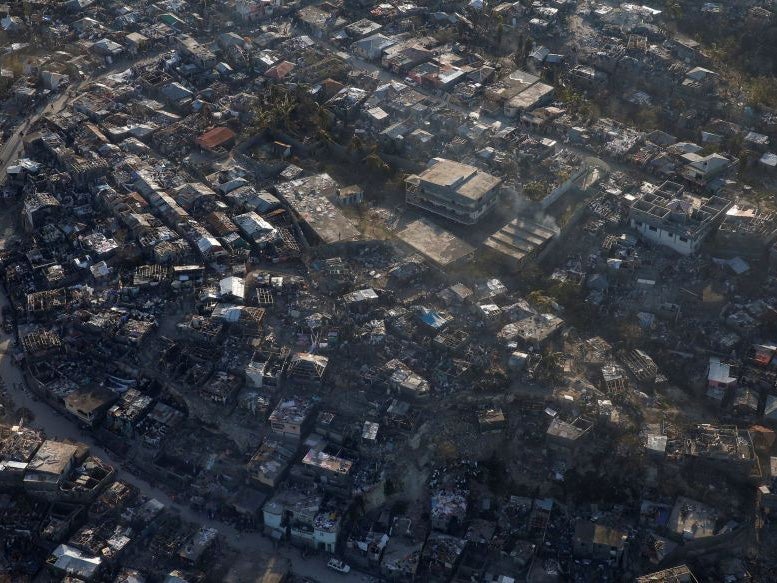Cholera outbreak kills 13 as Haitians plead for the world not to forget them in wake of Hurricane Matthew
'People have started dying, there are no doctors,' says health worker

Your support helps us to tell the story
From reproductive rights to climate change to Big Tech, The Independent is on the ground when the story is developing. Whether it's investigating the financials of Elon Musk's pro-Trump PAC or producing our latest documentary, 'The A Word', which shines a light on the American women fighting for reproductive rights, we know how important it is to parse out the facts from the messaging.
At such a critical moment in US history, we need reporters on the ground. Your donation allows us to keep sending journalists to speak to both sides of the story.
The Independent is trusted by Americans across the entire political spectrum. And unlike many other quality news outlets, we choose not to lock Americans out of our reporting and analysis with paywalls. We believe quality journalism should be available to everyone, paid for by those who can afford it.
Your support makes all the difference.An outbreak of cholera has killed 13 people in the aftermath of a hurricane that left almost 900 dead, prompting fears of another epidemic in the developing nation.
Dozens are reported ill with the disease, with more deaths expected, amid concerns that international attention has waned.
In the wake of Hurricane Matthew, floodwaters have mixed with sewage to spread disease.
Cholera – which causes severe diarrhea and can kill within hours if untreated – is spread through contaminated water and has a short incubation period, which leads to rapid outbreaks.
The Haitian government said there would be three days of national mourning following Hurricane matthew.
Government teams fanned out across the hard-hit southwestern tip of the country to repair treatment centers and reach the epicenter of one outbreak.
Six people died of cholera in a hospital in the town of Randel, which is inland on the peninsula,
"Randel is isolated, you must cross water, you must go high in the mountains, cars cannot go, motorcycles cannot go," Eli Pierre Celestin, who fights cholera for the health ministry, told Reuters. "People have started dying."
"There are nurses but no doctors," he said, concerned that cholera would spread due to lack of hygiene and as ground water moved because of rain and floods.
Port Salut, one of several beach towns ravaged by waves, wind and rain, counted its first cholera case in seven months on Saturday, and two more suspected cases were brought by ambulance to the town's clinic.
US medical aid group Americares dropped off supplies at the clinic, the only building standing among a group of shops flattened by the storm, before trying to reach Port-a-Piment further up the partially-flooded coastal road where the storm made landfall. A larger outbreak is suspected there.
Cholera was accidentally introduced to Haiti by United Nations peacekeepers after the 2010 earthquake and has since infected hundreds of thousands of people and killed almost 10,000..
The aid group Doctors Without Borders scrambled teams by helicopter to southern Haiti to respond to cholera cases.
Clifford Gauther, the health ministrys director for Haitis Sud Department, said cholera treatment centers, many made of metal sheeting, were destroyed by the hurricane. The ministry was rebuilding them.
Before the hurricane struck, the Central Emergency Response Fund (CERF) released a loan of $8 million (£6.4 million) to the United Nations Childrens' Fund, to ramp up the response to a worsening cholera epidemic in Haiti.
"In 2016 almost 27,000 cholera cases have been reported in Haiti, and over 240 people have died. Hurricane Matthew is feared to significantly worsen the situation and increase the risk of a larger outbreak," CERF said in a statement on Friday.
Additional reporting by Reuters
Join our commenting forum
Join thought-provoking conversations, follow other Independent readers and see their replies
Comments